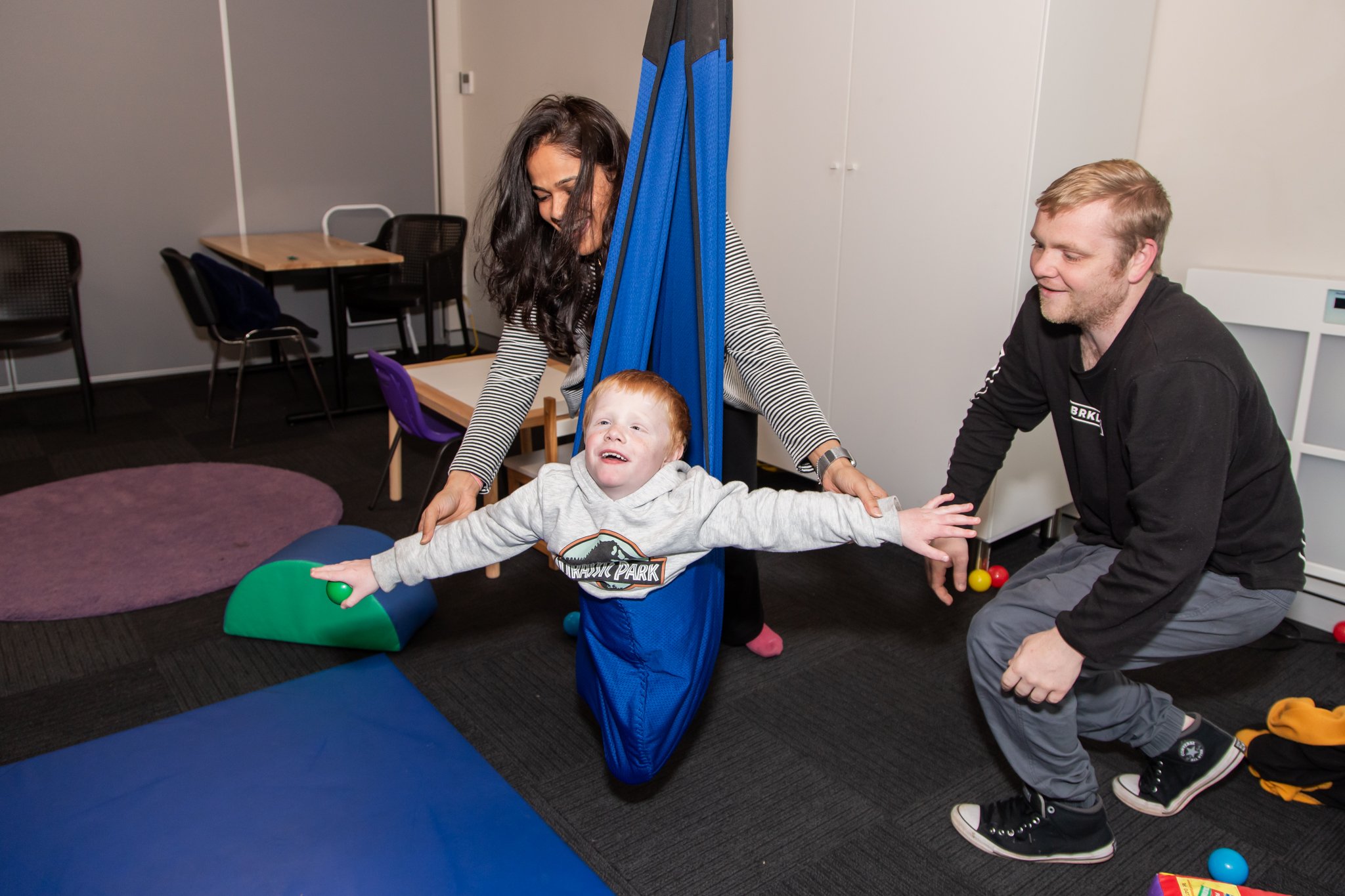Luke Priddis Foundation
Acceptance is key
Our approach at Luke Priddis Foundation centers on gaining a profound understanding and appreciation of each person. This involves recognising their strengths, interests, and how best to support their needs.
Acceptance plays a pivotal role in our philosophy. Autism is recognised as a neurodevelopmental difference that impacts how an autistic person processes and engages with the world around them.
The support that we provide at LPF encompasses skills building, the development of alternative communication methods, and adjustments in home, school, or community environments tailored to individual needs.

Luke Priddis Foundation
Empower the Journey
Effective communication is the cornerstone of our approach. We encourage open and consistent communication among parents, carers, teachers, families, therapists, and all support individuals involved. This collaborative effort ensures a holistic understanding of the individual, consistency in approach, and ultimately, the best possible outcomes in their journey toward growth and development. At Luke Priddis Foundation, we believe that by embracing acceptance and fostering effective communication, we can create a supportive environment that empowers autistic individuals to thrive.
Occupational Therapy
Our Occupational therapy team supports children to achieve independence in their lives around home, school, and community. We work with a broad range of ages, addressing the concerns related to sensory processing difficulties, autism, and sensory-motor challenges. Each child at LPF is offered a tailored program specific to their needs and goals.
Speech Therapy
Our Speech Pathologists work with individuals to assess, diagnose, and provide therapy around supporting communication skills and development. This could include supporting areas of language development, speech articulation, providing stuttering intervention, supporting social communication and engagement skills.
Psychology Services
Our psychologists can support you through a range of assessments and intervention services. We will discuss a range of options at your initial consultation to determine with assessment and/or intervention options are most appropriate for you.
01
Occupational Therapy
At LPF, our Occupational therapy team supports children to achieve independence in their lives around home, school, and community. We work with a broad range of ages, addressing the concerns related to sensory processing difficulties, autism, and sensory-motor challenges. Each child at LPF is offered a tailored program specific to their needs and goals.
Our therapists provide supports in:
Play skills.
Sensory management
Fine motor skills
Gross motor skills
Cognitive skills
Engagement in activities
Self-care skills.
Sensory/motor coordination
02
Speech Therapy
At the Luke Priddis Foundation, our Speech Pathologists have interests in supporting individuals’ early language development, gestalt language processors (‘whole language learners’) and working with tools that support or replace spoken language – e.g. iPad communication apps, Key Word Signs, picture symbols, etc. Our Speech Pathologists have several years’ experience working with Autistic individuals and supporting language differences.
Our therapists have additional training in the following programs:
More Than Words – Hanen (Early Communication Skills)
Lidcombe Program (Stuttering)
SoundsWrite (Literacy)
Language Acquisition through Motor Planning – LAMP (communication app)
Device Trials for Liberator communication systems (specialised communication devices)
Basic Key Word Sign – KWS (alternative communication)
Signed Exact English -SEE (alternative communication)
03
Psychology Services
Our psychologists work alongside individuals and their families to provide evidence-based intervention plans suited to their personal goals. Psychology can support individuals with their thoughts, feelings, and behaviours where they may be causing difficulties within their home, school, and community. Our psychologists provide services within the LPF clinic but may have the capacity for community, home, or school appointments.
Psychology services may be appropriate for you and/ or your child if you are noticing difficulties with:
Emotional awareness (eg. Recognizing and understanding different emotions)
Emotional regulation (eg. Difficulty using emotional regulation tools)
Anxiety/worry
Depression/low mood
Low self-esteem/negative thinking
Problem-solving and building independence
Coping with change
Recovering from traumatic events
Understanding how you can support an autistic child
Behaviours of concern such as harming self or others
Psychology Assessments
Our psychologists have training in administering assessments in the following areas:
- Cognitivie/Intellectual assessment (ages 6+)
- Academic/Specific learning disorder assessment (ages 4+)
- Giftedness (ages 6+)
- Mental health
